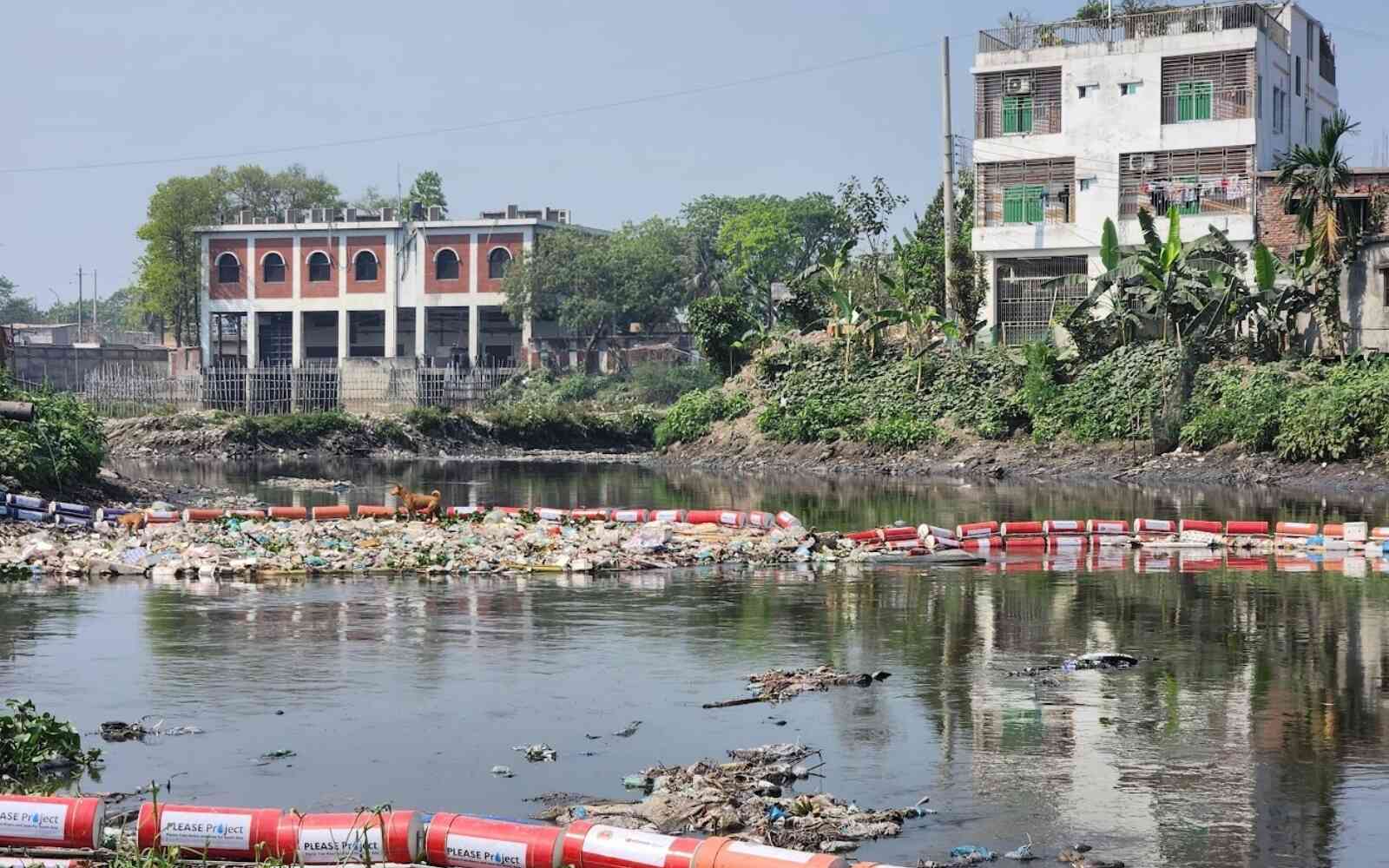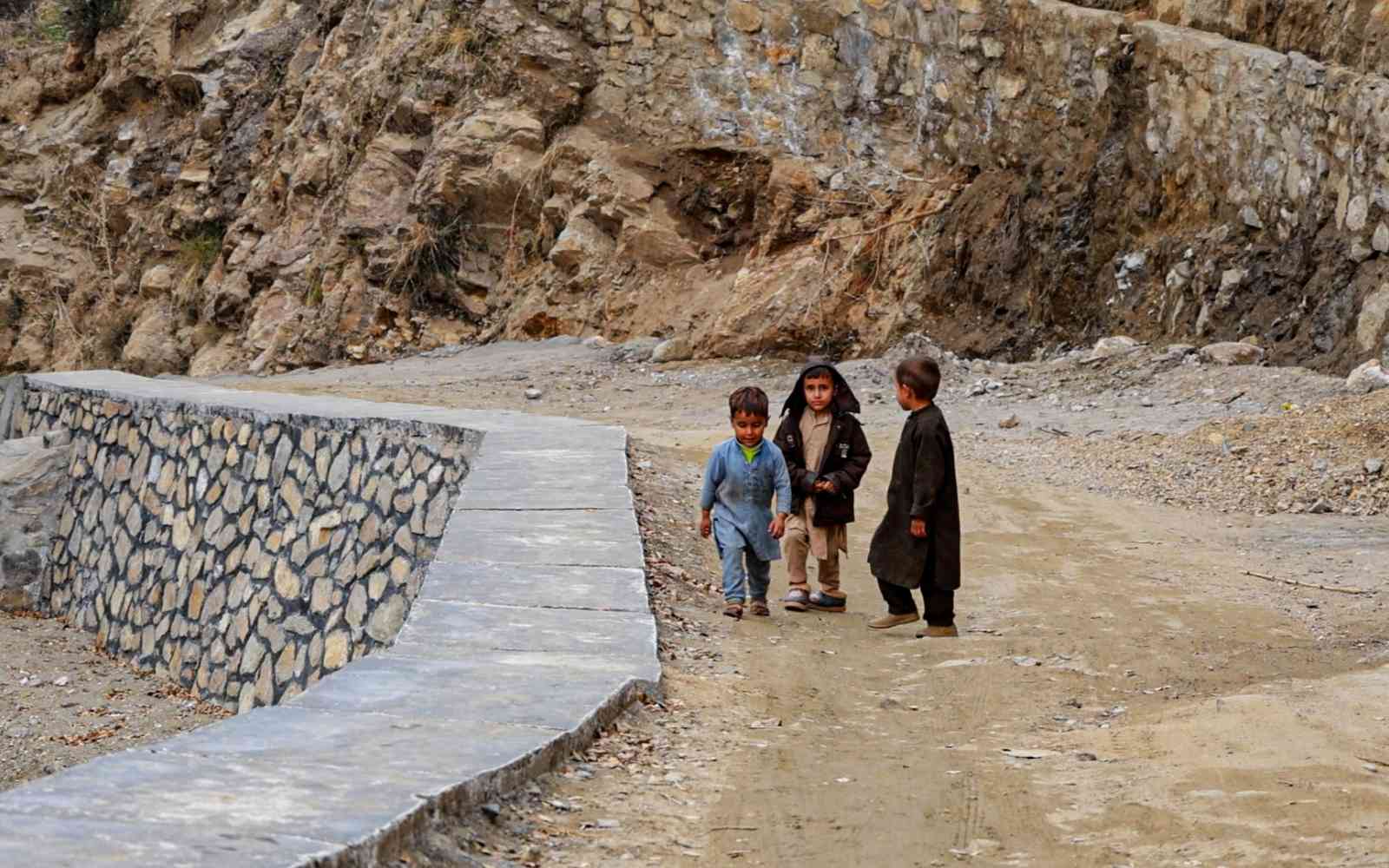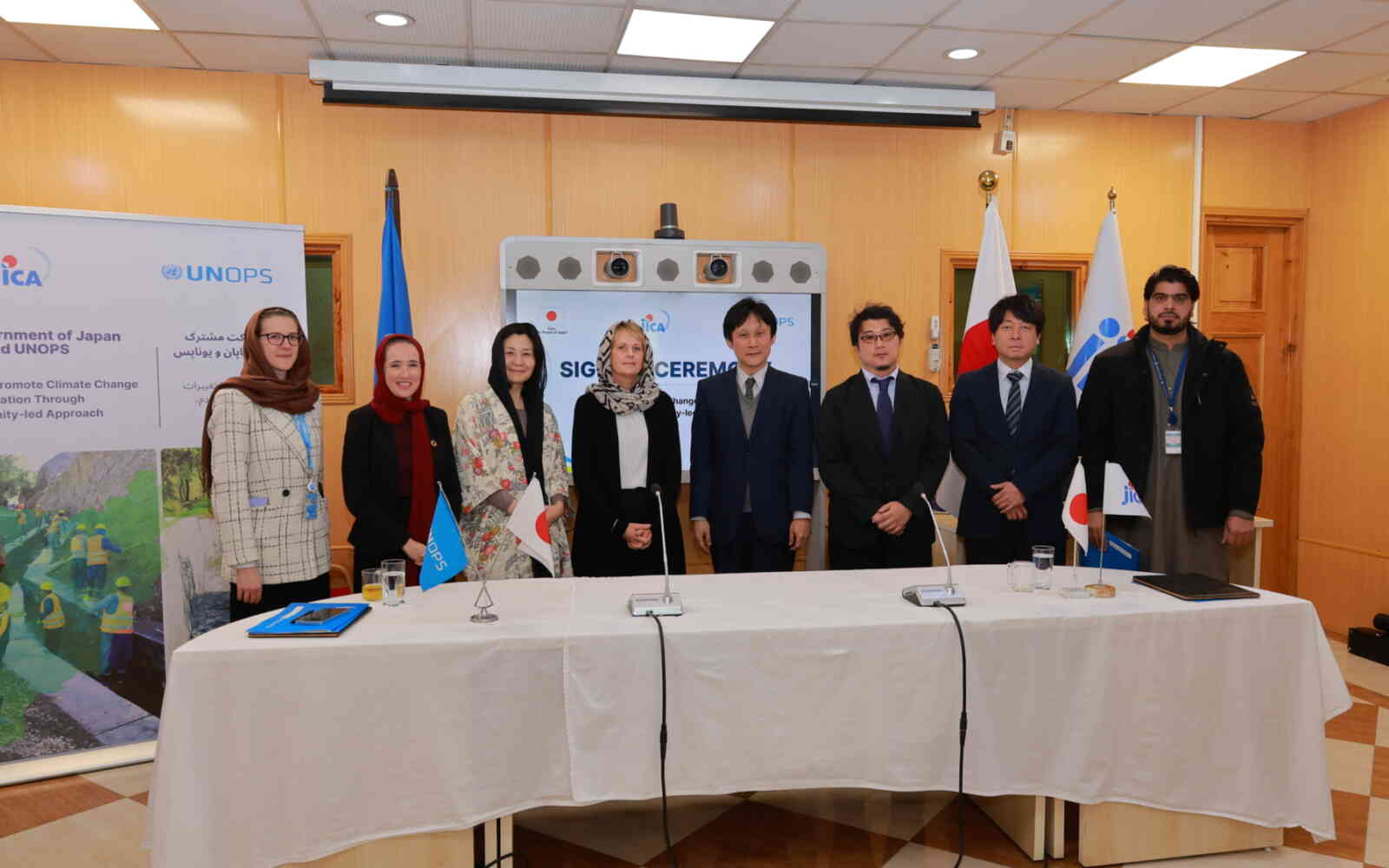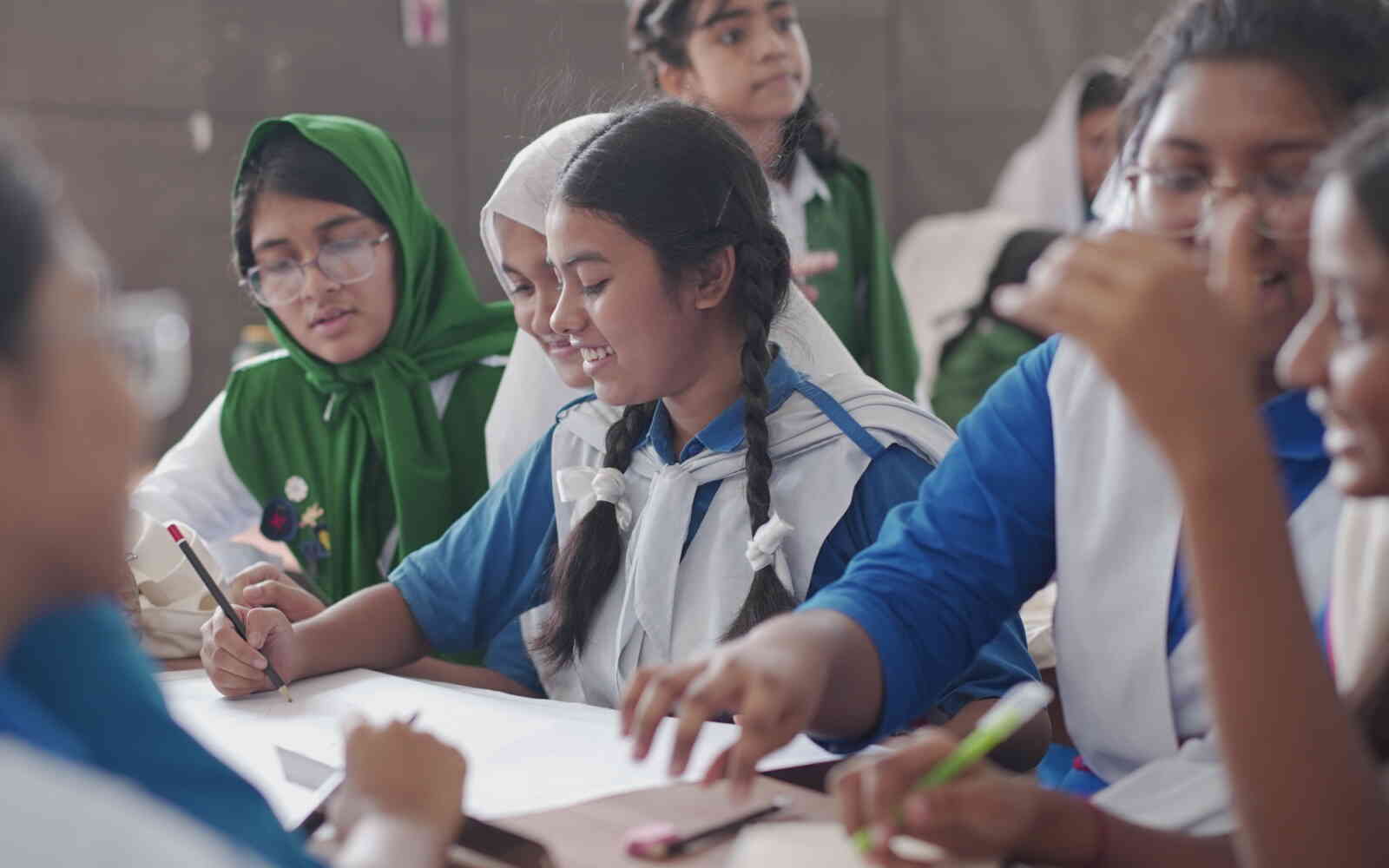The United Nations Office for Project Services (UNOPS)

Beyond the bin: How communities across South Asia are redefining waste
From digital tools in Lahore to classroom lessons in Kathmandu, one project is helping communities build cleaner cities – and take charge of their environmental future.
Within South Asia’s urban sprawl, a quiet transformation is taking place. From the slums of Dhaka and the riverbanks of Lahore to the schoolyards of Kathmandu, waste workers and young changemakers are reshaping their futures – with support from the Plastic Free Rivers and Seas for South Asia (PLEASE) project.
PLEASE is the region’s largest initiative to combat marine plastic pollution and promote sustainable plastic use. Financed by the World Bank and implemented by the South Asia Co-operative Environment Programme (SACEP), with UNOPS support, the project promotes practical solutions – public-private partnerships, innovation grants and inclusive education initiatives – to build a more circular and just economy.


Bangladesh
Lifting the label and changing the narrative in Bangladesh’s waste sector
In Dhaka’s Haddi Potti area, Mohamed Riaz’s story captures the toll on and deep resilience of waste workers long denied respect. Now 36, Riaz began collecting waste when he was just 12.
“It makes you feel like you’re nothing, like your worth is tied to what others throw away,” he said.
The social stigma has been relentless. Waste workers like Riaz are often accused of theft, excluded from community gatherings and forced to live in segregated slum areas. But change began with a simple shift in language. During a training session organized by RedOrange Limited and supported by PLEASE, workers were introduced to the respectful term ‘poricchonnota kormi’, or ‘sanitation worker’. For Riaz, it was transformative.
“It was the first time I felt proud of my work. They made us feel human again,” he says.
For change to be lasting, Riaz believes broader education and awareness are key.
“Recognition is a start, but real respect must come from within society,” he adds.


Pakistan
Digitally unlocking markets for waste workers in Pakistan
In Lahore, technology is becoming a lifeline for waste pickers like Mehwish, a 25-year-old woman who lives and works along the banks of Kharak Nala, a stream in the city. With no formal education or civic documents, and entirely reliant on local scrap dealers, Mehwish and her community have long been trapped in cycles of poverty and debt.
But the launch of the Plastech App – developed by OTIUM Consultancy Services with a PLEASE innovation grant – has begun to shift that narrative. Designed to connect waste workers directly with plastic buyers, the app helps users bypass exploitative middlemen. After receiving training, Mehwish is hopeful. “It will be a great service to our community if all members are given awareness and knowledge about the use of the app and the additional benefits it offers.”
Others have already seen results. Suhail, a fellow waste picker who cannot read or write, reported earning an extra 3,000 rupees in a single month through the app. “With the added convenience, this app will reduce my burden,” he says. Now, Suhail wants to volunteer to raise awareness in his community.
Still, access remains unequal. Most community members lack smartphones and don’t know the market value of the plastic they collect. Many, especially women, do not use protective equipment because it remains unaffordable.
“Continuous training and awareness are needed,” says Shazia, another user of the Plastech app.
“The Plastech app will help increase women's awareness about the new opportunities provided through technology and mobile phones,” she adds.


Nepal
Nurturing young environmental leaders in Nepal
Meanwhile, in Kathmandu, 16-year-old Bipana Budhathoki is showing that change can start early. Originally from Sindhuli, Bipana was a shy student who rarely spoke up in class. But that began to change when the Zero Waste at Schools (ZWAS) programme arrived at her school.
Implemented by Biocomp Nepal as part of PLEASE’s River+ project, ZWAS offers hands-on environmental education in cities like Kathmandu, Bharatpur and Lalitpur. Through multilingual toolkits and creative activities like “Best Out of Waste” competitions, it teaches students how to reduce, reuse and recycle.
Today, Bipana manages waste bins at her school and teaches her younger siblings to do the same at home. “Her story is a gentle reminder that when young people are given space to grow, they find their ways to lead with care, creativity and quiet strength,” her teacher says.
Whether through new terms of respect, digital tools, or environmental education, the PLEASE project is unlocking dignity, opportunity and leadership in unexpected places.


About the project
Plastic Free Rivers and Seas for South Asia (PLEASE), is a regional initiative to strengthen innovation and coordination of circular economy solutions to plastic pollution flowing into South Asian Seas. This project includes all eight nations of South Asia: Afghanistan, Bangladesh, Bhutan, India, Maldives, Nepal, Pakistan, and Sri Lanka. The PLEASE Project is financed by the World Bank, implemented by the South Asia Cooperative Environment Programme (SACEP), and supported by UNOPS. Visit the project website to learn more.

















